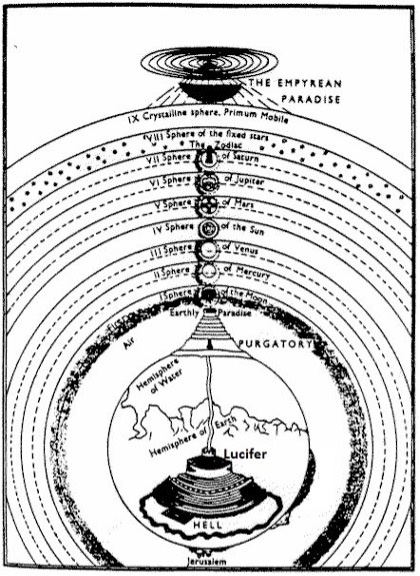
Published 2021-09-09
Keywords
- Science popularization,
- Dante Alighieri,
- Divine Comedy,
- Medieval philosophy
How to Cite
Copyright (c) 2021 Gian Italo Bischi

This work is licensed under a Creative Commons Attribution 4.0 International License.
Abstract
This paper deals with the issue of communication and dissemination of scientific knowledge outside the circle of specialists. In particular, in the occasion of the 700th anniversary of the death of Dante Alighieri, we will focus on the program for the popularization of knowledge outlined by Dante in the Convivio and De Vulgari Eloquentia, as well as several examples taken from his Divine Comedy concerning mathematical and natural sciences. Some solutions for communicating science proposed by Dante, such as the explanations of principles and scientific methods within a narrative framework (now often called the storytelling method), in addition to dialogues between characters, anticipate methods for science communication used by several authors after him. Examples are provided to show the depth of Dante’s knowledge concerning the basic concepts and methods of mathematics, physics and natural sciences (such as chemistry, meteorology, astronomy etc.). In addition, the examples demonstrate how effectively Dante used analogies and metaphors taken from sciences within his poetry.
References
- Dante Alighieri, Convivio, Translated by A. S. Kline 2008. https://www.poetryintranslation.com/klineasconvivio.php
- Dante Alighieri, De vulgari eloquentia Translated by Steven Botterill, Cambridge University Press 1996.
- Dante Alighieri, The Divine Comedy, Inferno; Purgatorio; Paradiso, Translated by Allen Mandelbaum, Everyman's library, Random House, New York 1995.
- Dante Alighieri, The Divine Comedy, Volume 1 Inferno, Translated by Robert M. Durling, Oxford University Press, New York 1996.
- Dante Alighieri, The Divine Comedy, Volume 2, Purgatory, Translated by Mark Musa, Penguin Books, New York 1985.
- Dante Alighieri, The Divine Comedy, Volume 3 Paradiso, Translated by Robert M. Durling, Oxford University Press, New York 2011.
- Dante Alighieri, La Vita Nuova (The New Life) Translation by A. S. Kline, with illustrations by Dante Gabriel Rossetti, Poetry In Translation, 2001, www.Poetryintranslation.Com
- Gian Italo Bischi, Matematica e letteratura. Dalla Divina Commedia al noir, Egea, Milano 2015.
- Giovanni Boccaccio, Il Comento alla Divina Commedia e gli altri scritti intorno a Dante, a cura di Domenico Guerri, Laterza, Bari 1918
- Andrea Capozucca, Public Engagement, Storytelling and Complexity in Maths Communication, Ph.D. Thesis, University of Urbino, 2017. https://ora.uniurb.it/retrieve/handle/11576/2656845/82425/phd_uniurb_269927.pdf
- Alison Cornish “The Vulgarization of Science: Dante’s Meteorology in Context”, in Science and Literature in Italian Culture From Dante to Calvino, Pierpaolo Antonello and Simon A. Gilson (Editors), European Humanities research Centre, Oxford 2004
- Bruno D’Amore, Più che ‘l doppiar de li cacchi s’inmilla. Incontri di Dante con la matematica, Pitagora Editrice, Bologna 2001
- Simon Gilson, ‘Light Reflection, Mirror Metaphors, and Optical Framing in Dante’s Comedy: Precedents and Transformations’, Neophilologus, 83 (1999), 241-52
- Simon Gilson, “Medieval Science in Dante’s Commedia: Past Approaches and Future Directions”, Reading Medieval Studies, 27 (2001), 39-77
- Pietro Greco, L’astro narrante. La Luna nella scienza e nella letteratura italiana, Springer-Verlag Italia, Milano 2009.
- Pietro Greco, La scienza e l’Europa. Dalle origini al XIII secolo, L’Asino d’oro edizioni, Roma 2014.
- Jonathan Osborne and Martin Monk, Good Practice in Science Teaching: What Research Has to Say. Open University Press, 2001.
- Charles Percy Snow, The Two Cultures and the Scientific Revolution , Cambridge University Press, 1959.




